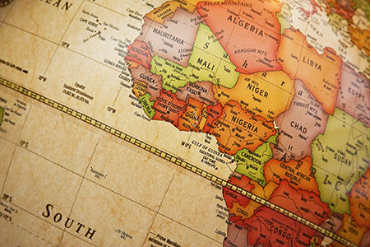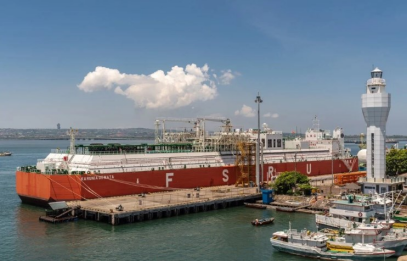
With the energy transition a hot topic off the back of COP 26 and in the lead-up to COP 27, LNG in particular, has risen to the fore on account of its 25% lower carbon emissions when compared to traditional heavy fuel oil emissions. Thus, the theme for this year’s MSGBC Oil, Gas & Power Conference & Exhibition is, ‘The Future of Natural Gas: Growth Using Strategic Investment and Poliymaking,’ in response to booming investor interest in recently discovered regional gas mega-reserves.
As new world-class LNG mega-developments open across the MSGBC region, Energy Capital & Power outlines several key capital expenditure projects to watch.
Greater Tortue Ahmeyim
The Greater Tortue Ahmeyim (GTA) project targets 15 trillion ft3 of gas reserves stretching across the Senegal-Mauritania border – a feat of policy and regulatory design thanks to both countries respective governments that have made it possible, as well as logistical engineering. Having been delayed by a year due to the COVID-19 pandemic, GTA is now on track to start production by late 2023.
Development of the GTA reserve, discovered in July 2019, has been planned in three stages, the first of these pegged to produce 2.5 million tpy of LNG. The project is operated by bp with a 60% stake, Kosmos Energy with 30% and national oil companies, Petrosen and SMHPM taking a 10% share.
Yakaar-Teranga
Yakaar-Teranga is in many ways a product of GTA’s success, targeting 20 trillion ft3 of gas in Senegal at a 3000-m water depth. The Yakaar-Teranga field is situated in the Cayer Profond block discovered in 2017, with the final investment decision (FID) to be made by the end of this year and production tentatively slated to start in 2024. Its development will be carried out in two phases, the first establishing a steady 150 million ft3/d of natural gas extraction and the second to build export facilities and local petrochemical processing plants.
BirAllah
Regional neighbour to GTA and mirroring Yakaar-Teranga’s reserves across the border, Mauritania’s BirAllah field holds 13 trillion ft3 of natural gas at a 2500-m water depth. Discovered using the Valaris DS-12 drillship in 2019, BirAllah was labelled the largest deepwater gas discovery of that year with the Orca-1 zone in Block C8 rivalling Senegal’s Yakaar-Teranga for monetisation prospects.
The Banda LNG Project follows from the signing of a non-binding memorandum of understanding between American megafirm New Fortress Energy and the Mauritanian government late last year, pursuant to the development of a national energy hub. Under this document, the Ministry of Petroleum, Mines and Energy has set a goal of securing gas supplies from the Banda field by 2024 by permitting New Fortress to deploy its leading Fast LNG technology.
The purpose of this deployment is for New Fortress to convert the country’s natural gas into LNG, in order to supply local markets via Mauritania’s 180 MW Somolec power plant and a new 120 MW plant. The Banda field holds an estimated 1.2 trillion ft3 of gas, providing an abundant reserve for New Fortress’ facility which achieved FID in March last year, targeting production of 1.4 million tpy with the potential to be operational in 20 months.

KARMOL
GAS Entec has recently announced a world first with the completion of outfitting for a modular LNG FSRU for KARMOL – a joint venture between Turkey’s Karpowership and Japan’s Mitsui OSK Lines. Once the vessel arrives in Senegal’s capital city of Dakar, it will be connected to Karpowership’s 236 MW floating power plant, in turn linking directly to Senegal’s grid. The move will serve as the country’s first LNG power supply and meet close to 15% of total demand.
Guinea LNG Project
Guinea’s US$300 million LNG project currently targets the development of a large scale LNG receiving terminal, as opposed to any production of its own. Nevertheless, the new terminal, located near the Port of Kamsar in Guinea’s Boke region, has the potential to drive significant regional demand for the product which can be used to supply domestic mining operations and other facilities.